-
2024
+

AKC National Detection Dog Conference, July 23 – 25, 2024
The AKC Detection Dog Task Force (DDTF) is pleased to announce the AKC National Detection Dog Conference will take place July 23 – 25, 2024, at the Roberts Centre in Wilmington, Ohio.
This year’s theme is Detection Dogs: Past, Present & Future. The conference will include speakers that operate on the cutting edge of canine detection research, training, breeding and handling. The conference will look at the crucial role of working dogs in protecting public safety; current trends and context; and explore opportunities for breeders, researchers, industry leaders, and trainers to work together to address the shortage of U.S. bred detection canines and to improve future operations.
Registration Fee: $224 per person
Includes conference sessions plus welcome dinner on Tuesday evening and lunch on Wednesday
Registration will be accepted on a “first come, first serve” basis as there is limited seating available. The registration fee is non-refundable, but it may be transferred to another person with prior notice. Registration closes on July 10, 2024, or when attendee limit is reached, whichever comes first.
Attendees are responsible for accommodations and transportation. A block of rooms at the Conference hotel is available for attendees to reserve. The special discounted group room rate for attendees is $139 per night plus taxes, single or double occupancy. For those eligible for government hotel rate, you will need to contact the Hotel directly at (937-283-3275, select option 3) to make reservations at the government hotel rate.
Visit our website https://www.akcdetectiondogconference.org/ to register for the conference and to book your hotel room.
Schedule
Tuesday, July 23
Registration/Welcome Reception/Dinner (4:30 – 8:00pm)
Wednesday July 24
Conference Programming & breeder/buyer meet-up event (8:30 am – 5:15pm)
Thursday July 25
Conference Programming – (8:00 am – 12:50pm)
Topics to Include:
- HISTORY OF WORKING DOGS
- LESSONS LEARNED FROM SUSTAINMENT TRAINING
- FEDERAL PROCUREMENT
- CANINE NUTRITION – GI STABILITY IN WORKING DOGS: MANAGING DIETS TO IMPROVE GUT HEALTH
- A DAY IN THE LIFE OF A K9 HANDLER
- ACCOMPLISHMENTS, CHALLENGES & OPPORTUNITIES: AN UPDATE FROM THE DETECTION DOG TASK FORCE
- THE CONTEMPORARY LEGAL ENVIRONMENT FOR WORKING K9S
- BREEDING AND REPRODUCTION FOR DETECTION DOGS
- SELLING SUCCESS, SELECTION AND DEVELOPMENT OF WORKING CANINES
- PANEL DISCUSSION: CANINE EVALUATIONS – ARE YOU & YOUR DOG PREPARED?
- LIVE WORKING DOG K9 EVALUATIONS
- INDUSTRY “MEET & GREET” EVENT
*Subject to change
Register at the conference website and check often for updates and additional information: https://www.akcdetectiondogconference.org/
- 2022 +
-
2021
+

November 10, 2021 – AKC DDTF Webinar Series – Recap and Recording: Dogs that Work Need Diets that Work (Blog & click link to view recording)
August 31, 2021 – AKC DDTF Webinar Series – Webinar Highlights Essential Qualities at 3 – 6 Months for Future Detection Dogs (Blog & click link to view recording)
Questions & Answers: 3 -6 Month Puppies, Getting Started Right for Detection Work
July 2021 – AKC DDTF Webinar Series – Webinar Highlights Program Changes That Could Positively Impact Detection Dog Shortage (Blog & click link to view recording)
June 2021 – AKC DDTF Webinar Series – Getting Puppies Started Right for Detection: Experts Compare and Contrast Successful Approaches – Part 2 (Blog & click link to view recording)
May 2021 – In-Person Seminar in Hillsborough NC – ‘Detection Dog Training Begins with a Responsible Breeder’. Please click here to view a post seminar blog about the event.
April 1, 2021 – AKC DDTF Webinar Series – “Exploring Issues, Challenges and Recommendations for Improving Government Acquisition of US-Bred Working Dogs”. (Blog & click link to view recording)
Feb. 25, 2021 – AKC DDTF Webinar Series – “So Your Dog Isn’t Cut Out for Explosives Detection? Here Are Other Opportunities.” Click here to view a recordin
January 6, 2021 – AKC DDTF Webinar Series – “Getting Puppies Started Right for Detection: Experts Compare and Contrast Successful Approaches.” Click here to view a recording
*Jan. 25, 2021 – Please find Questions & Answers from the webinar.
-
2020
+
-
2019
+

The third annual AKC US Detection Dog Conference was a success with a capacity attendance.
Internationally known subject matter experts shared their knowledge on the best practices for breeding, training and deployment of Explosives Detection Canines. Conference presenters and attendees had many opportunities to discuss the domestic shortage of explosives detection dogs and solutions to the issue.
Thank you to our sponsor – Pet Partners Insurance – and our presenters and attendees. Stay tuned for information about the 2020 event. We hope to see you there!
For sponsorship information, contact Daphna.Straus@akc.org
- Exclusive provider of AKC Pet Insurance
- Coverage available for accidents, illnesses, and more
- Offering discounts for working and service dogs
- Promoting regular wellness visits and preventative care
- Visit our booth at the conference to learn more
-
2018
+

The second AKC US Detection Dog Conference was a success with a capacity attendance.
Internationally known subject matter experts delivered thought provoking presentations that covered the breeding, training and deployment of Explosives Detection Canines as well as discussions on the domestic shortage of these amazing dogs.
Thank you to the presenters and attendees for your contributions. If you were unable to attend this year, please stay tuned to this website for information and photos from the 2018 conference.
Presentations
Dr Paul Waggoner/Pam Haney – Development of a Model Detector Dog Breeding & Socialization Program
Scott Thomas – What is a Green Dog?
Dr Cynthia Otto – Optimizing Performance in the Canine Athlete
Dr Cynthia Otto – A Prescription for the Detection Dog Deficiency
Sheila Goffe/Mike Williams – Advancing Public Policy for US Detection Dogs
Speakers
 Dr. David Adebimpe, Founder/CEO of ScentLogix
Dr. David Adebimpe, Founder/CEO of ScentLogixDr. David Adebimpe is a research scientist, philosopher, and inventor who uses his cross-disciplinary skills and expertise to solve unique problems that require the convergence of different scientific and technical disciplines and philosophies. With over 30 years of combined experience as an organic chemistry professor, a guest scientist at NIST and NASA, and as an applied nanotechnologist, he is a subject matter expert and world leader in scent-engineering, and in the development of scent-detection training aids and practical tools that enhance the operational olfactory capabilities of search-and-detect K9s.
Using a combination of his unique theories pertaining to mammalian olfaction and the mechanisms of scent generation from materials, David developed the first-and-only official inert replacements to the United States Navy’s MN01 and MN 76 canine kits for explosives detection. He also invented the world’s first non-hazardous scent-training aids for the detection of TATP, HMTD, dynamite, PETN/ETN, PCP, MDMA, bed-bugs, and developed the “ScentLogix™ ScentKit Collection,” which currently stands as the world’s most comprehensive collection of operationally-proven non-hazardous explosives and narcotics training aids for the imprinting, scent-training and certification of working dogs.
David serves as a consultant to numerous governmental and non-governmental agencies such as the Departments of Defense (US, Brazil, India), Justice (Australia), Customs (Chile, Singapore), and the Interior (Mexico, Nigeria), amongst others, in matters pertaining to detector K9 scent kit utility and training protocols. Because of client ratings and K9 performances, ScentLogix™ ScentKits are now regarded as the “gold-standard” for training aids used in the imprinting and maintenance training of working dogs, and are now being utilized within numerous elite military, law enforcement and private working dog programs, worldwide, as superior replacements to using real materials as training aids, and as certification standards.
David’s qualifications include a Doctor of Science degree, an interdisciplinary Ph.D. in Synthetic Organic Chemistry, Materials Science, and Chemical Engineering, and a B.Sc. with honors in Biochemistry with Psychology. Additionally, he has attended several FBI and US-DOJ certification programs in explosives detection and terrorism preparedness. He is a member of IABTI, a founding member of S.O.U.R.C.E and serves on numerous national and international advisory boards. His current professional interests include “learning the art of applying a scientific knowledge of odor, scent engineering, and biological olfaction, towards (i) the fabrication of electronic noses, and (ii) improving the portfolio of practical educational tools, utility scents, and training standards for the detector K9 community.”
ScentWire™, his most recent R&D effort in developing next-generation scent-training aids, is specifically geared towards the enhancement of K9 performances within working-dog programs solely reliant on the use of traditional scent-training aids. Dr. Carmen Battaglia, AKC Detection Dog Task Force Project Leader & AKC Board Member
Dr. Carmen Battaglia, AKC Detection Dog Task Force Project Leader & AKC Board Member Dr. Carmen Battaglia, who holds Ph.D. and master’s degrees from Florida State University, is a breeder, author, researcher and lecturer. He has worked at Emory University, Florida State University, DeKalb College and the University of Tennessee Space Institute. He is approved to judge the Herding and Working groups, several Sporting breeds, and the Chinese Shar Pei. His research about puppies, the Effects Neurological Stimulation and the risks of bloat have been published in professional veterinary journals. He has authored many books and more than 60 articles which have appeared in major dog publications and around the world. He is a well-known breeder of German Shepherd Dogs and has owned Pembroke Corgi’s, Longhaired Dachshunds, English Springers and Portuguese Water Dogs. He is a popular TV and radio guest and has appeared on Animal Planet several times. He served as chair for the study group on vicious dog legislation in Georgia, and their recommendations have been used as model legislation in several states. He is a director of the American Kennel Club and past president of AKC’s Companion Animal Recovery program. He has served on several important committees including: The National Genetics Committee, The Canine Health and Education Committee, and AKC’s Committee for the Future.
 Dr. Matthew Breen works with students in his lab in the research building at the College of Veterinary Medicine. Photo by Becky Kirkland.
Dr. Matthew Breen works with students in his lab in the research building at the College of Veterinary Medicine. Photo by Becky Kirkland.Dr. Matthew Breen is a Professor of Genomics and the Oscar J. Fletcher Distinguished Professor of Comparative Oncology Genetics in the Dept. of Molecular Biomedical Sciences at the NC State University College of Veterinary Medicine.
A member of a team that decoded the canine genome in 2005, Dr. Breen has over 25 years experience in genetics and cancer research and has authored over 160 scientific publications. Dr. Breen is recognized internationally for his work in veterinary and comparative genetics, genome mapping and cancer. Dr. Breen is a strong advocate for the comparative value that our dogs have to the study of human cancers. He has served on numerous advisory boards for companies in the animal health industry, for scientific journals and also for federal and private funding agencies.
Through his laboratory at NC State and now also at Sentinel Biomedical, Dr. Breen and his team develop robust molecular assays/tests for early detection, diagnosis and prognosis of canine cancers. Dr. Candace Croney, Director, Purdue University Center for Animal Welfare Science
Dr. Candace Croney, Director, Purdue University Center for Animal Welfare ScienceDr. Candace Croney is director of Purdue University’s Center for Animal Welfare Science and professor of animal behavior and well-being in the departments of Comparative Pathobiology and Animal Sciences. She has a PhD in animal sciences from The Pennsylvania State University, USA. Following postdoctoral training at the University of Maryland, College Park, she went on to serve as Assistant Director of Conservation Education at the American Zoo and Aquarium Association and has held faculty appointments in Animal Sciences at Oregon State University and Preventive Medicine at The Ohio State University before joining Purdue University.
Her research, teaching and outreach efforts focus on the interactions between animal behavior, cognition and well-being, the effects of rearing environments and enrichment on animal behavior and welfare, the ethical implications of animal care and use decisions, and public perceptions of animal agriculture.
Her research has been featured in national and international broadcast programs by National Geographic, the BBC, and their affiliates.
She serves as scientific advisor on animal welfare to numerous groups, including the American Humane Association, Bob Evans Farms, McDonald’s, Kent Pet Group and Wayne Farms. Mark Dunn – Executive VP, The American Kennel Club
Mark Dunn – Executive VP, The American Kennel ClubMark Dunn is the American Kennel Club Executive Vice President and is a Board member and Managing Director of AKC Reunite. Among other things, Mark leads AKC’s Registration and Customer Development Department, a team focused on meeting the needs of breeders and dog owners across the US. He also works with pet industry leaders and international registry organizations to do good things for dogs and the people who love them around the world. Mark is the staff leader for the AKC Explosive Detection Dog Taskforce, a key initiative for the AKC. Mark joined AKC in 2009 as Director of Internal Consulting. Previously he was Director of Engineering and Quality at Eastman Kodak and has over 20 years of experience leading operations, engineering and business development teams.
 Sheila Goffe, Vice President, Government Relations, The American Kennel Club
Sheila Goffe, Vice President, Government Relations, The American Kennel ClubSheila leads American Kennel Club’s efforts in the public policy realm to promote responsible dog ownership, advocate for public policy that advances the health and wellbeing of dogs, preserves the legacy and capabilities of purpose-bred dogs, and protects the rights of dog owners. She oversees AKC legislative policy strategy and AKC outreach at the federal, state and local levels, works with legislators, legislative staff and regulators on key issues in canine policy, and supervises the AKC Government Relation team. She also serves as Secretary on the AKC PAC Board of Directors.
Sheila joined AKC staff in 2006. Prior to that, she served for five years on editorial and product development staff for Congressional Quarterly. Previous experience included federal legislative staffing and advocacy, work as an editor and analyst for The Economist Intelligence Unit, and serving as an adjunct in Political Science/Comparative Politics at the State University of New York/Stony Brook.
Sheila has completed Ph.D. coursework and research in American Politics/Public Policy, earned a Masters of Philosophy in American Politics and a MA in International Political Economy and Development at Fordham University, and is a former Fulbright Scholar, studying Political Economy and Development in Sri Lanka.
She is a breeder/owner/handler of Siberian Huskies, a member of the Siberian Husky Club of America, and several specialty and all-breed kennel clubs. Pamela Haney MS, Auburn University College of Veterinary Medicine
Pamela Haney MS, Auburn University College of Veterinary MedicinePam Haney is the Canine Performance R&D Manager of the Canine Performance Sciences Program at the Auburn University College of Veterinary Medicine, which includes managing the CPS detection dog breeding program. She has a MS in Exercise Physiology and is currently a PhD candidate, focusing on Canine Biomechanics, in the Auburn University School of Kinesiology. Pam has 8 years’ experience participating in detection dog R&D. Her research focuses on examining purpose bred detection dogs to improve the whole dog. Her specific interests include physical performance, physiology, genetics, and reproduction. Her current research involves detection dog breeding and selection, early puppy development, and canine physical conditioning and biomechanics.
 Dr. Brian Hare, Professor of Evolutionary Anthropology, Duke University
Dr. Brian Hare, Professor of Evolutionary Anthropology, Duke UniversityDr. Brian Hare professor of evolutionary anthropology at Duke University in North Carolina and a member of the Center for Cognitive Neuroscience, which is a division of the Duke Institute for Brain Sciences. He received his Ph.D. from Harvard University, founded the Hominoid Psychology Research Group while at the Max Planck Institute for Evolutionary Anthropology in Leipzig, Germany, and subsequently founded the Duke Canine Cognition Center when arriving at Duke University.
Dr. Hare has published dozens of empirical articles in peer-reviewed scientific journals including Proceedings of the Royal Society, Current Biology, Nature Neuroscience, Science, Proceedings of the National Academy of Sciences, PLOS Biology, Animal Behaviour, Animal Cognition and the Journal of Comparative Psychology. His publications on dog cognition are among the most heavily cited papers on dog behavior and intelligence.
His research consistently received national and international media coverage over the last decade and has been featured in the Daily Mail, The Telegraph, The Economist, The New York Times, The New Yorker, National Geographic, Time, The Washington Post, the Los Angeles Times, Nature, Wired, Science magazine, CNN and ABC (Australia). He has been a frequent guest on radio programs including the BBC and American National Public Radio. He has also been featured in multiple documentaries from production companies such as National Geographic (U.S.), BBC (U.K.), Nova (U.S.), RTL (Germany), SBS (Korea) and Globo (Brazil). Dr. Hare is frequently invited to give lectures on his research on dog intelligence. For example, in 2009 he gave the keynote addresses at the annual conferences for both Assistance Dog Training Society and Association of Pet Dog Trainers, which are both among the largest dog training societies in the U.S.
In 2004 the German Federal Ministry of Education and Research and the Alexander von Humboldt Foundation named him a recipient of the Sofja Kovalevskaja Award, Germany’s most prestigious award for scientists under age 40. In 2007 Smithsonian magazine named him one of the top 37 U.S. scientists under 36.
Fred Helfers, Founding President -Pacific Northwest Police Detection Dog Association, Owner FH Consulting / Canine Detection Services
Fred Helfers started training and handling detection canines in 1982. Fred trained and personally worked two drug detection canines during his 28 years in law enforcement. Over the past 34 years Fred has expanded his knowledge of detection canines by training canines and handlers in the fields of drug detection, insect detection, natural gas detection and accelerant detection.
Further, for over 20 years Fred operated a professional detection dog training kennel and training facility for police officers, training drug, accelerant, natural gas and insect detection canines and their handlers. Fred Helfers has been recognized as an expert witness on detection dogs in State and Federal courts. Fred’s passion and internationally recognized expertise in training detection canine teams has led him to conduct training seminars and classes throughout United States, Canada, Brazil, Australia, Sweden, and Denmark.
Fred is the past president of the Washington State Police Canine Association (1986-1990) and the founding president – president emeritus of the Pacific Northwest Police Detectin Dog Association (pnwk9.org). Fred’s recognized expertise in the training of detection canines and handlers led to Fred being appointed as a founding member of the Scientific Working Group on Dog and Orthogonal Factors (SWGDOG.org). One of 55 national and international scientists, trainers, and practitioners, developing public safety detection dog best practices. Fred currently serves as a member of Organization of Scientific Area Committee (OSAC – Dogs and Sensors subcommittee).
Fred Helfers served as the narcotics detection canine trainer for the Oregon State Police Canine Unit (1989 -2011) and was the detection dog course administrator/ head trainer for Detection Dog Handler course to Federal, State and Military Police Officers in Florianopolis, SC, Brazil. Course was sponsored by Narcotics Affairs Section, US Embassy Brasilia, Brazil. (2005)
Over the past 34 years, Fred Helfers has trained literally hundreds of professional canines and their handlers.
Along with being recognized as a master trainer in detection canines Fred is recognized as a judge, certifying official for ORT and Certified Nose Work Instructor (CNWI) for NACSW in the USA and also ACSW in Australia. John P. Kerwick, President (Region 7), United States Police Canine Association (USPCA); Tactical Commander, Metropolitan Transportation Authority Police Canine Unit, New York City
John P. Kerwick, President (Region 7), United States Police Canine Association (USPCA); Tactical Commander, Metropolitan Transportation Authority Police Canine Unit, New York CityCaptain Kerwick is responsible for the day to day management, motivation and long term operations of the largest mass transit canine unit in the United States (a fifty team K-9 Unit) that is deployed throughout the New York City metropolitan area. He also communicates regularly with federal, state and local agencies to gather intelligence regarding acts of terrorism, to identify current explosive trends and then implements those issues into current training practices.
As the President of Region 7 of the USPCA, Captain Kerwick meets regularly with other local and federal canine units. “We help them train and certify their teams in such areas as patrol, narcotic detection, explosive detection and locating missing persons,” he says. “We work very hard to make sure all of the law enforcement canine teams in New York are as proficient and professional as possible.” When it comes down to catching criminals and finding illegal contraband Lt Kerwick says “In dogs we trust”.
Captain Kerwick also serves on the FBI-DHS sponsored Scientific Working Group on Dog and Orthogonal detector Guidelines (SWGDOG) and the National Explosive Dog Canine Advisory Board (NEDCAB). Along with other members of global law enforcement, attorneys and scientists from around the world, he helps establish consensus based best practices to optimize the use of detector dog teams.
During his twenty seven years’ experience in handling police canines, Captain Kerwick has made numerous arrests, found many weapons and in 1997 he and his partner “Spike” stopped a person from setting fire to a crowded commuter train in the Bronx. During that event canine “Spike” was injured by the offender but returned to duty in time to see him off go to prison.
Most recently, he oversaw the opening of a 72 acre state of the art canine training facility located in Dutchess County, New York which is entirely focused on the transit environment of New York City.
Lt Kerwick’s current canine partner is named “Seabee” in honor the NYPD ESU Police Officer Stephen Driscoll who was killed in the line of duty during the September 11, 2001 World Trade Center Disaster. Jane Messineo Killion, Founder, Puppy Culture, When Pigs Fly Dog Training and Madcap Bull Terriers
Jane Messineo Killion, Founder, Puppy Culture, When Pigs Fly Dog Training and Madcap Bull TerriersJane is dog breeder, professional dog trainer, and author. Her book “When Pigs Fly: Training Success With Impossible Dogs” is the bible for training non-biddable (stubborn) breeds.
She’s also written articles for numerous magazines, most notably a 28 article series for Clean Run Magazine about training non-traditional breeds in agility. She’s fortunate enough to travel the world presenting seminars on dog behavior and training, with a focus on dogs who are particularly difficult to train.
Jane and her husband, Mark Lindquist, breed Bull Terriers under the Madcap kennel name, and they have scores of breed and performance titles to their credit. For years, Jane was the local contact for Bull Terrier rescue, and fostered and placed many dogs.
“Puppy Culture” is the product of Jane’s quest for the science and wisdom which would lead to the best outcomes for her own puppies. Lane Kjellsen, Chairman and CEO, K2 Solutions
Lane Kjellsen, Chairman and CEO, K2 SolutionsLane Kjellsen founded K2 Solutions in 2003 after retiring from a 22-year career as a U.S. Army Special Operations Warfighter. During his career, he became a seasoned subject matter expert in small unit tactics, counter-terrorism and counter insurgency. His final tour placed him in a principal role as a Combat Developer focused on advancing capabilities in the areas of explosive breaching and thermobaric weapons. As such, he led scientists, technologists, and national laboratories in the development of solutions to mission critical and mission essential requirements for counter-terrorism, counter proliferation.
Throughout the past 15 years, Mr. Kjellsen has focused K2 on providing combat development, counter IED, and security solutions to U.S., state, and local governmental agencies as well as to private industry throughout the nation. In so doing, has led the company from a two person operation to one with currently more than 130 employees.
In his leadership role with K2, Mr. Kjellsen provides strategic vision to the executive leadership team and to the company as a whole. He coordinates and provides key decision making on strategic direction and company pursuits while focusing business efforts on supporting the American Warfighter and security interests both at home and abroad. His understanding and historical association with U.S. Special Operations forces, in combination with his direct interaction with governmental laboratories, has resulted in the development, improvement, re-design and fielding of a number of military explosives, weapons, and munitions.
Mr. Kjellsen also maintains a primary focus on the use of canines as security and force multipliers. As a successful amateur Labrador retriever trainer and handler at the Field Trial level, Mr. Kjellsen was on the cutting edge of the development and use of canines in improvised explosive device (IED) detection. At the height of the U.S. involvement in Afghanistan, K2 provided 647 trained Labradors to the U.S. Marine Corps for route clearance and the forward movement of the troops. Today, Mr. Kjellsen has expanded K2’s canine focus to include: Person-Borne explosives detection in high threat/high vulnerability environments such as major sporting events, concerts, and amusement parks; detection of hidden explosives in air freight and air cargo; oil spill detection; stand-off explosives detection; and the training of dual and multi-purpose canines for law enforcement entities throughout the U.S. Dave Kontny, Chief of Staff, Joint Program Office for Countering Improvised Explosive Devices
Dave Kontny, Chief of Staff, Joint Program Office for Countering Improvised Explosive DevicesDave Kontny joined the Federal Bureau of Investigation (FBI) in August of 2015 and currently serves within CIRG’s Counter Improvised Explosive Devices Section as the Chief of Staff, Joint Program Office for Countering Improvised Explosive Devices.
Prior to joining the FBI, Mr. Kontny was assigned to Headquarters Department of Homeland Security’s Office of Infrastructure Protection as the Chief of Staff in March 2010. Before assuming the role of Chief of Staff Mr. Kontny was assigned to the Protective Security Coordination Division (PSCD) in September 2007 where he served as the Senior Advisor, National Canine Policy and Standards for the Division’s Office for Bombing Prevention (OBP). He became the Deputy Chief, OBP in December 2008, and in August 2009, the PSCD Acting Deputy Director.
Prior to joining PSCD, Mr. Kontny was assigned as the Director, National Explosives Detection Canine Team Program within the Transportation Security Administration (TSA). During his tenure, Director Kontny was instrumental in providing overall leadership of the TSA’s national program and significantly increased the number of deployed explosives detection canine teams and funding levels within both the aviation and mass transit transportation sectors. Prior to joining the TSA Mr. Kontny was assigned as a Special Agent with the Federal Aviation Administration’s (FAA) Office of Civil Aviation Security.
Prior to his assignment with the FAA and TSA, Dave was stationed at Headquarters United States Air Force Directorate of Security Forces, Pentagon, Washington DC, as the Superintendent of Force Protection and Department of Defense (DoD) Military Working Dog (WMD) Program Manager. Before being assigned to the Pentagon he was the Headquarters Air Combat Command (ACC), Directorate of Security Forces, Superintendent, Contingency Operations Branch and MWD Program Manager. Prior to his assignment at ACC he performed duties as the Superintendent, Current Operations Branch and Superintendent, MWD Program, Headquarters Strategic Air Command (SAC).
Dave was born in Worcester Massachusetts and is a graduate of Burncoat Senior High School. His military and law enforcement carrier began in February 1978, joining the Massachusetts Army National Guard as a Military Policeman. In February 1983, he entered active duty in the United States Air Force as a Law Enforcement Specialist. After 15 years of honorable service he transferred from active duty to the United States Air Force Reserve where he earned the rank of Chief Master Sergeant.
Mr. Kontny was the DoD Explosives Canine Coordinator for both the 1992 Republican National Convention and the 1994 World Cup Soccer events.
He is a graduate of the Federal Bureau of Investigation National Academy and is an advisory board member of the International Association of Bomb Technicians and Investigators (IABTI) and a member of the International Association of Chiefs of Police (IACP) Arson and Explosives Subcommittee. Dave has extensive experience with working dogs and currently serves as the Vice Chairman for the Organization of Scientific Committees for Forensics Science, Dog and Sensor Subcommittee and Co-Chair of the National Explosives Detection Canine Advisory Board.
Dave and his wife Nancy reside in Montclair VA and have a son Kurt, and a daughter Kristen, as well as four lovely granddaughters, Aureanna, Kaitlyn, Ally, and Melody.
 Wendell Nope, K-9 Training Supervisor, Utah Department of Public Safety
Wendell Nope, K-9 Training Supervisor, Utah Department of Public SafetySgt. Wendell Nope is a member of the Peace Officer Standards and Training Division (POST) of the Utah Department of Public Safety. He serves as the K-9 Training Supervisor over training, evaluating and certifying service dogs and personnel on an international scale. More than 3,000 officers and dogs have attended the facility to take the 4 to 8 week long courses. Sgt. Nope is a former board member of the national Police Dog organization, Dogs Against Drugs/Dogs Against Crime for which he coordinated education and curriculum development for more than 1,300 police officers. He formerly served as supervisor of the explosive detector dog unit, functioning on an international scale, for the security department of the Church of Jesus Christ of Latter-day Saints in Salt Lake City. A former K-9 law enforcement handler and supervisor, Sgt. Nope provides technical resources to the U.S. Military and the U.S. Border Patrol. He is a Police Dog Trial Judge and has authored numerous articles for Police K-9 Ma
 Dr. Cindy Otto, founder/director, Penn Vet Working Dog Center
Dr. Cindy Otto, founder/director, Penn Vet Working Dog Center Dr. Otto is a tenured associate professor at the University of Pennsylvania, School of Veterinary Medicine in Philadelphia, PA. As a board certified specialist in Veterinary Emergency Medicine she served as an attending clinician in the Penn Vet Emergency Service between 1991 and 2014. During that time she had a special interest in sepsis, trauma and disaster medicine. As a result of her deployment with PA-TF1 (a Federal Urban Search and Rescue Team) to hurricane Floyd and 9/11, she initiated an AKC-CHF funded longitudinal study of search dogs that worked at 9/11 and was inspired to create to the Penn Vet Working Dog Center (www.PennVetWDC.org). Her experience with these amazing canine athletes motivated her to become a board certified specialist in Veterinary Sports Medicine and Rehabilitation (DACVMR-canine) and a Certified Canine Rehabilitation Therapist. She currently serves as the executive director of the Penn Vet Working Dog Center where she oversees the fitness and medical care of the detection dogs in the program and provides rehabilitation and conditioning for police and other working dogs. She has published over 60 peer reviewed articles, numerous book chapters and is an internationally recognized speaker in both emergency medicine and working dog medicine. She was named Pennsylvania’s 2002 “Veterinarian of the Year” and received an Alumni Recognition Award in 2006 and the OSU Distinguished Alumnus Award in 2008 from the Ohio State University. She was a top 20 finalist in AVMF’s America’s Favorite Veterinarian in 2014 and recipient of the Philadelphia Kennel Club’s Dog’s Best Friend Award in 2016.
 John C. Pearce, Director of Operations, VWK9
John C. Pearce, Director of Operations, VWK9John Pearce has been with VWK9 for the past two years and is currently the Director of Operations for VWK9 and Vice President of Quality Assurance/Control for Cargo Screening K9 Alliance. John is responsible for executing services contract for Vapor Wake® services in support of large special events. He is also responsible for overseeing course development and course instruction for handlers, K9 Trainers and managers. John also oversees the Vapor Wake® and Cargo Screening K9 Alliance evaluation programs, ensuring Vapor Wake® and Cargo Screening K9 Alliance teams meet critical standards. John came to VWK9 after 15 years of running the Auburn University Canine Detection Training Center in Anniston, AL, an extension of the AU Canine Detection Research Institute (CDRI), after a distinguished career in the U. S. Air Force. The mission of CDRI was to enhance canine detection technology and John sought this opportunity to apply his considerable experience and expertise to improving the canine detection resources and capabilities of the Nation.
John began his military career in law enforcement and as a Military Working Dog Handler. He distinguished himself early in his career by winning first-place in the Military Working Dog Competition of the 1981 Worldwide Air Force Peacekeeper Challenge. He went on to instructional and leadership assignments of increasing significance, including:
- Instructor, Explosive Detector Dog Course, Lackland Air Force Base
- Program Manager, Military Working Dogs, HQ Air Education and Training Command, Randolph Air Force Base
- Superintendent, Dog Training Section, 341st Training Squadron, Lackland Air Force Base
During John’s assignment as the Superintendent of DoD Dog School’s Dog Training Section, He led his team of trainers to set a 10 year production record of Patrol/Explosives Dogs for DoD by training and certifying 377 Patrol Explosive Dogs in one year. MSgt Pearce’s final assignment was as the Branch Chief of the Federal Aviation Administration Support Branch, which became the DHS-Transportation Security Agency, Explosive Detection Canine Team Training Program, at Lackland Air Force Base where he was responsible for the training, evaluation, quality-control, and coordination with local police departments and airport authorities for over 200 civilian law enforcement explosive detector dog teams in 36 major airports.
Upon retirement from the Air Force, Mr. Pearce continued his service to the Nation’s security and safety through his role as Associate Director for Training and Operations at Auburn University’s Canine Detection Training Center. Here he led numerous training, dog breeding-production, course development, and technology-transfer efforts including:- Development of canine Vapor Wake® technology for hand-carried and body-worn explosives
- First organized maritime-specific explosive detector-dog program, curriculum, and course for the US Coast Guard in support of the Coast Guard’s post 9/11 expanded homeland security mission
- Course development and training for 70+ Federal Protective Service explosive detector-dog teams
- Development of an off-lead, remotely-controlled, improvised (explosive) device detector-dog program successfully deployed with the U. S. Marine Corps Infantry in the Iraq Theatre
- Program for planned early development of puppies to be detector dogs using volunteer inmates
 Commissioner Larry B. Perkins, CFE, CPP, CMP,Vice President and Assistant General Manager, PNC ARENA/CAROLINA HURRICANES
Commissioner Larry B. Perkins, CFE, CPP, CMP,Vice President and Assistant General Manager, PNC ARENA/CAROLINA HURRICANESMr. Perkins is a 42-year public assembly industry veteran with a vast array of expertise in venue management, including his 24 year service as Vice President at the Meadowlands Sports Authority, home to the New York Football Giants and Jets, IZod Center, and Meadowlands Racetrack. Former home to the NBA NJ Nets, NHL NJ Devils, NCAA Section Hall Basketball, NASCAR Grand Prix, MISL Cosmos Soccer and a host of world-class events.
He is a Certified Facilities Executive (CFE), a Certified Protection Professional (CPP) and a Crowd Management Professional (CMP). As a Private Investigator, he held a Department of Defense Top Secret Clearance.
He is the author of “Buck Seventy-Two, A Destiny of Will,” 2015, “Crowd Safety and Survival – Practical Event and Public Gathering Safety Tips,” 2004; “Crowd Management; in the eye of the storm”, 1997; Eight Point Crowd and Event Planning Model, 2007 and has written numerous articles for the IAVM Facility Manager Magazine, Stadia Magazine, Teen People Magazine and others. He is an internationally renown Crowd Management expert. More recently, Larry appeared on ESPN’s “Outside the Lines” and a NBC TV Dateline segment on crowd safety and survival entitled, “Get Out Alive.”
Perkins served as the 80th President of the International Association of Venue Managers (IAVM) from 2006 to 2007.
Mr. Perkins was appointed by the Governor of the State of North Carolina to the North Carolina State Emergency Response Commission and chairs the SERC School Safety Subcommittee. He is the recipient of the 2013 IAVM Prestigious Charles A. McElravy Award, the Johnson and Wales University Distinguished Visiting Professor Award, State of New Jersey Senate Resolution, NC Senate Resolution and 2018 Champion for Children’s Award, present by the NC Foundation for Public School Children.
Perkins is the Founder, Foster A Voice, LLC, a nonprofit organization, whose mission is to provide a voice, mentorship and support for foster, adoption kinship and for children living in an unsafe environment. He was the founder and Chairman of the Northeastern Americans with Disabilities Act Consortium (NAD‑AC) An advocacy group of venue professionals who help shape the American with Disabilities Act for places of public assembly. Scott Thomas, former breeding program manager, TSA
Scott Thomas, former breeding program manager, TSAScott Thomas became a federal employee of the Transportation Security Administration Canine Training and Evaluations Branch in May of 2005. He was the program manager of the breeding of over 500 dogs specifically bred for the purpose of detection work. This effort required the application of genetic quantitative trait selection, continual behavioral assessments, the understanding and use of exercises to control epigenetic expression, and maintenance of good canine health within the breeding colony. He also oversaw two Department of Homeland Security, Science and Technology Directorate research contracts to improve behavioral metrics, enhance development, identify genetic markers of success, and to control trans-generational epigenetic effects.
Due to economic restraints, the TSA Canine Breeding and Development Center’s efforts were discontinued. At that point Scott Thomas oversaw the contracting efforts for canine procurement for single purpose detection dogs. Under the current procurement strategy, DHS S&T is planning and will be sponsoring research to further our understanding of canine assessment during the procurement process.
Scott Thomas began his career in animal husbandry and training in 1983. He began has a dog obedience instructor and boarding kennel operator. He then spent five years as a veterinary assistant in a growing veterinary practice. He went on to work in a variety of animals related jobs to include; Dolphin and Sea Lion training and presentations, exotic animal habitat design, an eco-tour guide of the Carolina coastal habitats, and he has also worked giving presentations with exotic birds. He was hired by DOD Military Working Dog Veterinary Services/ Behavioral Medicine section at the beginning of 2002. He was offered this position not only based on his work experience, but also from his 30 years of experience as a competitive working dog trainer. He was promoted to Program Manager of the TSA Puppy Program in the Fall 2002.
Dr. L. Paul Waggoner PhD, Experimental Behavioral Psychology, Auburn University College of Veterinary Medicine
Paul Waggoner is the Co-Director of the Canine Performance Sciences Program and an adjunct associate professor in the Department of Anatomy, Physiology, and Pharmacology at the Auburn University College of Veterinary Medicine. He has 26 years of experience performing detection dog research & development. He is a co-inventor of Auburn’s patented Vapor Wake® detector dog technology. He is a member of the Dogs & Sensors Sub-committee of the National Institutes of Standards and Technology (NIST), Organization of Scientific Area Committees (OSAC). His current research efforts include: Odor memory of detection dogs; functional magnetic resonance imaging (fMRI) of canine cognition; detection of cancer by dogs; detection of new and emerging security threats by dogs; and detection dog breeding & raising.
 Stacey West, Canine Operations Manager, K2 Solutions
Stacey West, Canine Operations Manager, K2 SolutionsStacey West has taken on numerous roles for K2 including Canine Training Team Leader, Field Service Rep deployed to Afghanistan, Project and Program Manager for numerous canine efforts and Canine Procurement Manager. Stacey played a major role in training and testing K2’s Person Borne EDD teams during the 2017-18 NFL season and during the 2018 Super Bowl in Minneapolis. In addition to overseeing the daily canine operations, Stacey oversees K2’s breeding and young dog programs. Stacey has a Bachelor of Science in Fisheries and Wildlife Science from North Carolina State University and a Master of Science in Zoology from Clemson University. Prior to joining the K2 team, Stacey was a professional trainer of competition retrievers for field trials and hunting tests.
Schedule
Tuesday, August 28th
5:15 – 6:00 pm – Registration / Welcome Reception
6:00 pm – Opening Remarks – US Congressman Mike Rogers, R-Alabama
6:30 pm – Dinner
Welcome from AKC – Dr. Carmen Battaglia, AKC Board of Director
8:00 – 8:45 pm – Keynote – Do All Working Dogs Think Alike? – Dr. Brian Hare, Professor of Evolutionary Anthropology, Duke University
Wednesday, August 29th
7:30 – 8:00 am – Registration (for those who did not attend Tuesday evening events)
8:00 am – 8:15 am – Welcome & an Introduction to the American Kennel Club – Mark Dunn, AKC Executive Vice President, AKC Detection Dog Task Force Staff Project Leader
8:15 am – 9:15 am – A Prescription for the Detection Dog Deficiency – Dr. Cindy Otto DVM PhD DACVEC DACVSMR CCRT, Executive Director, Penn Vet Working Dog Center
9:15 am – 10:15 am – Scientifically Evaluating Welfare in Large-scale Kennels: Does High Volume Preclude Good Welfare? – Dr. Candace Croney, PhD, Purdue University Director, Center for Animal Welfare Science; Professor, Animal Behavior and Well-being
10:15 am – 10:30 am – Break
Break-out Workshops – Breeder Track & Trainer/Deployment Track
10:30 am – 12:30 pm – Breeder Track – Early Socialization & Scent Games for Future Working Dogs – Jane Killion, Breeder, Trainer, Author & Puppy Culture Founder
10:30 am – 12:30 pm – Trainer/Deployment Track – Explosives Detection: Trends, Theory & Practice – Dr. David Adebimpe, Founder/Chief Executive Officer, ScentLogix
12:30 pm – 1:30 pm – Lunch
1:30 pm –2 pm – Detector Dog Demonstration – K2 Solutions Inc.
Break-out Workshops – Breeder Track & Trainer/Deployment Track
2 pm – 3 pm – Breeder Track – Development of a Model Detector Dog Breeding & Socialization Program – Dr. Paul Waggoner and Pam Haney, Auburn University Canine Performance Sciences Department
2 pm – 3 pm – Trainer/Deployment Track – Optimizing Performance in the Canine Athlete: Advances in Canine Sports Medicine – Dr. Cindy Otto, Executive Director, Penn Vet Working Dog Center
3 – 3:15 pm – Break
3:15 – 4:00 pm – What is a Green Dog? Problems & Pitfalls of Assessment Criteria & Purchasing Contracts – Scott Thomas, former breeding program manager, TSA
4:00 – 4:15 pm – Advancing Public Policy for US Detection Dogs – Part I – Forrest McConnell, Senior Counsel, US House of Representatives
4:15 – 4:30 pm – Break
4:30 – 6 pm – Detector Dog Standards & Certifications – Panel Discussion – Dave Kontny, Chief of Staff, Joint Program Office for Countering Improvised Explosive Devices; Fred Helfers, Founding President, Pacific Northwest Police Detection Dog Association; Capt. John Kerwick, Metropolitan Transportation Authority Police Department; John Pearce, Director of Operations, Vapor Wake K9; LTC Richard Vargus, MWD Program Manager, US Army Provost Marshall’s Office
Thursday, August 30th
8 am – 9 am –The Sport of Canine Scent Work & it’s Influence on the Professional Detection Dog World – Fred Helfers, Founding President, Pacific Northwest Police Detection Dog Association
9 am – 9:50 am – Utilizing Bomb Dogs for National Events – Sgt. Wendell Nope, K9 Training Supervisor, Utah Department of Public Safety of Veterinary Medicine
9:50 am – 10:05 am – Break
10:05 am – 10:45 am – New Tools for Genetic Analysis of Working Dogs – Dr. Matthew Breen, PhD, C.Biol, FRSB, Professor, Genomics, Oscar J. Fletcher Distinguished Professor, Comparative Oncology Genetics, NCSU College of Veterinary Medicine
10:45 am – 11:15 am – Event Planning and Crowd Behavior for Large Gatherings – Larry B. Perkins CPP CMP, Vice President of Guest Relations, Assistant General Manager, PNC Arena
11:15 – 11:30 am – Break
11:30 am – 12:15 pm – Advancing Public Policy for US Detection Dogs – Part II – Sheila Goffe, Vice President, AKC Government Relations; Mike Williams, Mike Williams Capitol Strategies
12:15 pm – 12:30 pm – Wrap-Up & Thank You’s – Dr. Carmen Battaglia, AKC Board of Directors
Breed Explorer
Featured
GETTING STARTED IN DOG SPORTS
RESOURCES FOR DOG SPORT PARTICIPANTS
- Event Search
- Title Application Portal
- Downloadable Forms
- Rules & Regulations
- Online Event Management
- Points & Awards
- Judging Resource Center
- Judges Directory
- Judges Education - AKC Canine College
- AKC Weekly Winners
- Event Cancellations
- Award Corrections
- AKC Contact Info for All Sports
- AKC Registered Handler Program
- Junior Resources
- Cluster Coordination

























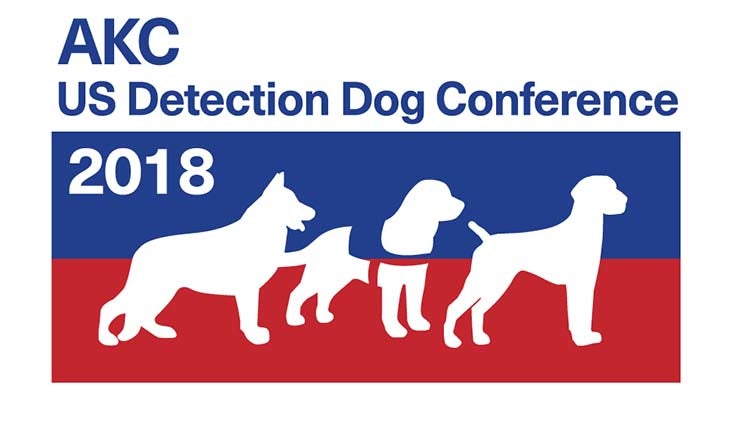
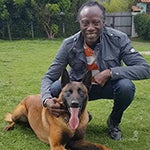 Dr. David Adebimpe, Founder/CEO of ScentLogix
Dr. David Adebimpe, Founder/CEO of ScentLogix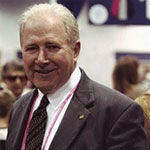 Dr. Carmen Battaglia, AKC Detection Dog Task Force Project Leader & AKC Board Member
Dr. Carmen Battaglia, AKC Detection Dog Task Force Project Leader & AKC Board Member 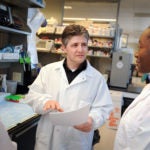
 Dr. Candace Croney, Director, Purdue University Center for Animal Welfare Science
Dr. Candace Croney, Director, Purdue University Center for Animal Welfare Science Mark Dunn – Executive VP, The American Kennel Club
Mark Dunn – Executive VP, The American Kennel Club Sheila Goffe, Vice President, Government Relations, The American Kennel Club
Sheila Goffe, Vice President, Government Relations, The American Kennel Club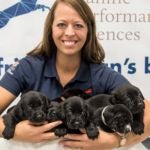 Pamela Haney MS, Auburn University College of Veterinary Medicine
Pamela Haney MS, Auburn University College of Veterinary Medicine Dr. Brian Hare, Professor of Evolutionary Anthropology, Duke University
Dr. Brian Hare, Professor of Evolutionary Anthropology, Duke University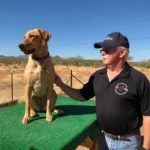
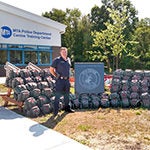 John P. Kerwick, President (Region 7), United States Police Canine Association (USPCA); Tactical Commander, Metropolitan Transportation Authority Police Canine Unit, New York City
John P. Kerwick, President (Region 7), United States Police Canine Association (USPCA); Tactical Commander, Metropolitan Transportation Authority Police Canine Unit, New York City Jane Messineo Killion, Founder, Puppy Culture, When Pigs Fly Dog Training and Madcap Bull Terriers
Jane Messineo Killion, Founder, Puppy Culture, When Pigs Fly Dog Training and Madcap Bull Terriers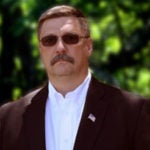 Lane Kjellsen, Chairman and CEO, K2 Solutions
Lane Kjellsen, Chairman and CEO, K2 Solutions Dave Kontny, Chief of Staff, Joint Program Office for Countering Improvised Explosive Devices
Dave Kontny, Chief of Staff, Joint Program Office for Countering Improvised Explosive Devices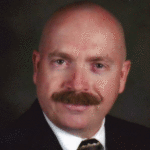
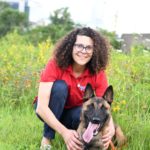 Dr. Cindy Otto, founder/director, Penn Vet Working Dog Center
Dr. Cindy Otto, founder/director, Penn Vet Working Dog Center 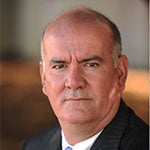 John C. Pearce, Director of Operations, VWK9
John C. Pearce, Director of Operations, VWK9 Commissioner Larry B. Perkins, CFE, CPP, CMP,Vice President and Assistant General Manager, PNC ARENA/CAROLINA HURRICANES
Commissioner Larry B. Perkins, CFE, CPP, CMP,Vice President and Assistant General Manager, PNC ARENA/CAROLINA HURRICANES Scott Thomas, former breeding program manager, TSA
Scott Thomas, former breeding program manager, TSA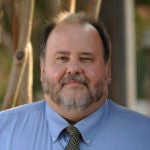
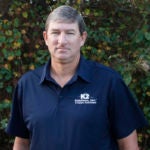 Stacey West, Canine Operations Manager, K2 Solutions
Stacey West, Canine Operations Manager, K2 Solutions